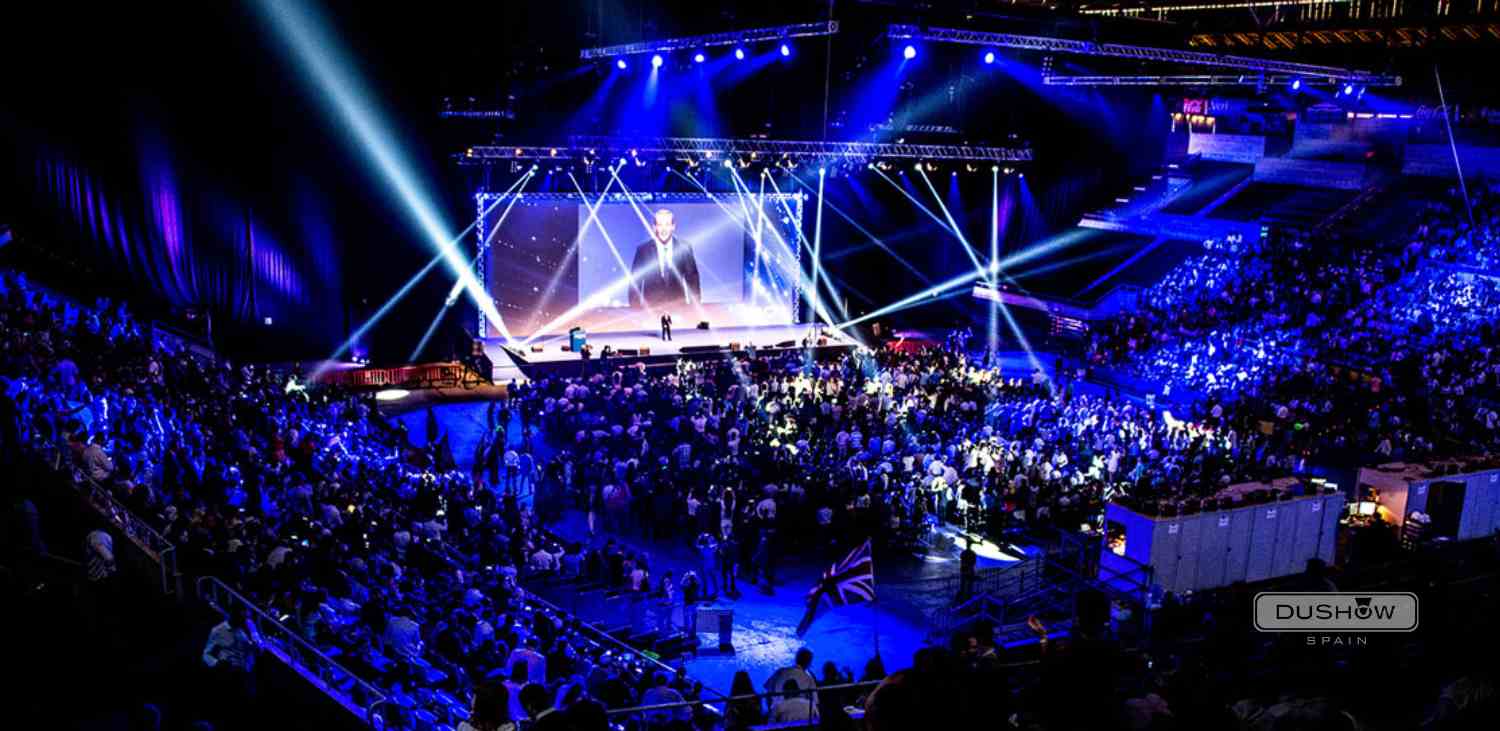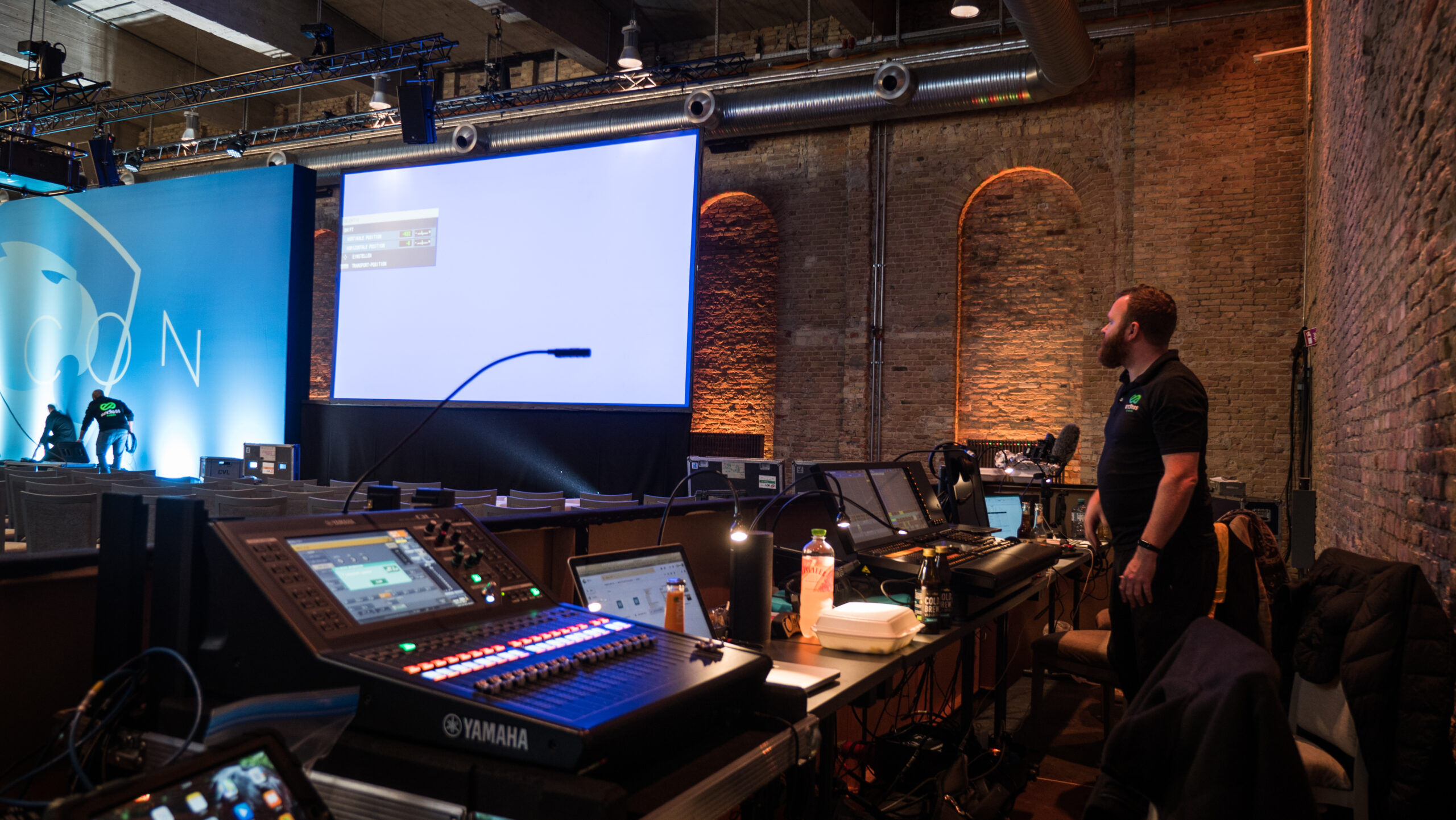How Event Production Functions: A Comprehensive Take A Look At the Refine
Event production is a complex and structured process that requires careful planning and implementation. It begins with establishing clear objectives and understanding the target audience. Each action, from budgeting to place choice, plays an essential duty in making sure success. As the procedure unfolds, various components have to line up effortlessly. Yet, the nuances of this intricate procedure commonly go undetected. What are the vital stages that add to an unforgettable event?

The Initial Preparation Phase
When beginning on event production, mindful planning is necessary to assure an effective end result. The first planning phase functions as the structure for all succeeding initiatives. Throughout this stage, event manufacturers have to specify the event's objective and purposes plainly. Recognizing the target audience assists tailor the experience and messaging, assuring relevance and engagement.Producers should also consider the event layout, whether it be in-person, digital, or crossbreed, as this will certainly influence various logistical elements. Picking an ideal day and location is vital, as it influences accessibility and availability.Furthermore, assembling a reputable team is fundamental for separating duties and enhancing communication. Developing a timeline with turning points assurances all tasks are finished on routine. This stage entails thorough study, consisting of identifying potential challenges and devising techniques to alleviate risks. Eventually, a well-structured first preparation phase establishes the tone for an effective event production journey.

Budgeting and Resource Allotment
In event production, reliable budgeting and resource allocation are important for success - event production charlotte. Establishing economic parameters establishes the foundation for all succeeding choices, while resource circulation methods guarantee that every part of the event is sufficiently sustained. Together, these elements help preserve control over expenses and optimize using available resources
Developing Financial Parameters
Establishing economic specifications is essential to the success of any event production, as it establishes the structure for effective budgeting and resource appropriation. This process begins with defining the overall spending plan, which encompasses all aspects of the event, including place prices, event catering, and advertising and marketing. By recognizing available funds, event coordinators can focus on expenses and allot resources accordingly. Furthermore, it is vital to perform comprehensive marketing research to prepare for possible prices and identify funding sources, such as sponsorships or ticket sales. Establishing clear monetary specifications likewise aids in danger monitoring, allowing coordinators to set apart contingency funds for unexpected expenditures. Ultimately, a well-defined budget acts as a roadmap, leading the event production team in the direction of attaining their objectives while keeping economic control.
Source Circulation Techniques
Efficient resource distribution techniques are necessary for making the most of the impact of an event while sticking to budget restraints. Effective event production requires a meticulous strategy to budgeting and resource allotment. Coordinators have to prioritize important components such as venue, catering, and modern technology, guaranteeing that funds are allocated to areas that enhance participant experience. An in-depth budget plan should lay out anticipated expenses and recognize areas for potential price savings, such as negotiating with vendors or discovering sponsorship chances. Additionally, tracking expenditures throughout the planning procedure helps protect against overspending. By utilizing strategic source distribution, event manufacturers can provide an unforgettable experience while preserving monetary obligation, inevitably contributing to the total success of the event.
Location Option and Logistics
Selecting the right location is vital to the success of any kind of event, as it sets the phase for the overall experience. Location selection includes reviewing different aspects, including capability, accessibility, and place. Organizers should take into consideration the target audience and the nature of the event, guaranteeing the place straightens with the event's goals.Logistics play a considerable duty in this procedure, involving plans for seats, audiovisual tools, and catering services. An appropriate location must promote smooth flow for attendees and team, enhancing engagement.Additionally, assessing possible venues for facilities like car park, restrooms, and fire escape is essential for security and ease. The timeline for securing the venue is also vital, as preferred areas might schedule quickly - event production charlotte. Complete preparation and prompt execution can eventually contribute to a seamless event experience, making venue selection and logistics fundamental components of effective event production.
Imaginative Principle Growth
While the location sets the physical stage, innovative idea advancement shapes the event's identification and story. This procedure begins with identifying the event's purpose and target market, enabling event manufacturers to develop a compelling theme that reverberates with guests. Brainstorming sessions typically include varied perspectives, cultivating innovative ideas that align with the event's goals.Once a theme is established, aesthetic aspects such as color schemes, signage, and design are designed to enhance the overall environment. Narration methods might likewise be incorporated to develop an appealing journey for participants, ensuring a memorable experience. In addition, factors to consider concerning amusement, tasks, and interactive components are straightened with the picked idea, reinforcing the motif throughout the event.Ultimately, effective imaginative idea growth assurances that every facet of the event works cohesively, leaving an enduring impression on guests and fulfilling the event's goals. This fundamental work lays the foundation for subsequent preparation and implementation phases.
Collaborating With Suppliers and Suppliers
Successful event production rests on efficient cooperation with vendors and vendors. Choosing reliable partners, discussing agreements successfully, and ensuring timely distributions are crucial action in this process. Each of these aspects adds greatly to the general success and smooth implementation of an occasion.
Selecting Reliable Partners
Exactly how can event organizers assure a seamless production experience? Choosing trustworthy companions is important in accomplishing this objective. Event organizers must conduct complete research to recognize suppliers and suppliers with a tested performance history of quality. This consists of examining referrals, evaluating profiles, and evaluating client comments. Coordinators must focus on companions that show professionalism and reliability, timely communication, and a determination to work together. Building solid partnerships promotes depend on and allows quick problem-solving during the event. Additionally, it is beneficial to choose More Info local suppliers that comprehend the location and local logistics. Inevitably, an effective event rests on the synergy between organizers and their companions, making sure that every element of production runs smoothly and successfully.
Working Out Contracts Effectively
Reliable arrangement of contracts is an important action in the cooperation between event planners and their vendors and providers. This process entails clear communication of assumptions, deliverables, and timelines. Organizers ought to conduct detailed research study on market rates and market standards to develop a baseline for arrangements. It is crucial to create a joint environment, encouraging open discussion about terms, pricing, and prospective backups. Coordinators should additionally prioritize recognizing the vendor's capacities and limitations to align their needs successfully. Flexibility can cause mutually helpful agreements, promoting long-term connections. Crafting distinct contracts that include details performance metrics can assist guarantee responsibility, inevitably resulting in effective event implementation and complete satisfaction for all parties entailed.
Making Certain Timely Deliveries
Timely deliveries are essential for the smooth execution of any kind of event, requiring persistent cooperation in between planners and their vendors and vendors. Reliable communication is essential, as it helps establish clear assumptions pertaining to delivery schedules, quantities, and certain demands. Organizers often produce comprehensive timelines to detail essential published here turning points, making sure all events continue to be aligned throughout the process. Regular check-ins with suppliers can help recognize potential delays early, permitting proactive services. Additionally, developing strong connections with trustworthy vendors promotes depend on and responsibility, which can lead to much better service and prioritization. By prioritizing these collaborative initiatives, organizers can decrease disturbances, consequently improving the general efficiency of event production and ensuring that all necessary materials and services get here as intended.
Advertising and Promotion Strategies
While organizing an occasion, the success of advertising and promotion techniques can greatly affect participation and involvement. Efficient strategies usually include a mix of digital advertising and marketing, traditional advertising and marketing, and grassroots outreach. Using social media sites platforms enables real-time interaction and targeted advertising and marketing, reaching certain demographics efficiently. Email advertising and marketing campaigns can further involve prospective guests with individualized content and reminders.Collaborations with influencers or market leaders can also improve integrity and widen reach. Producing interesting content, such as videos or blog sites, aids to generate buzz and endure passion leading up to the event. Additionally, leveraging early-bird discount rates and unique perks can incentivize ticket purchases.Promoting with typical channels, such as posters or regional media, stays relevant, specifically in community-focused occasions. A complete approach that like this integrates several methods warranties optimum visibility and engagement, eventually adding to the event's success and the production of a remarkable experience for guests.
On-Site Implementation and Monitoring
On-site implementation and monitoring are essential components that identify the general success of an occasion. Efficient control during the event guarantees that all elements align with the planned agenda. Event managers oversee logistics, including supplier control, devices configuration, and visitor services. Keeping an eye on timelines and resolving any kind of unanticipated problems are essential for preserving a seamless experience.The personnel plays a considerable function, as qualified personnel are responsible for various jobs such as enrollment, info dissemination, and technical support. Communication amongst staff member is crucial; it promotes a collaborative environment and makes it possible for fast resolution of challenges.Additionally, safety protocols have to be abided by, guarding the health of all guests. Post-event assessments are also component of on-site administration, providing understandings for future enhancements. By focusing on these aspects, event manufacturers can create remarkable experiences that satisfy or exceed participant expectations while attaining the event's goals.
Frequently Asked Concerns
Exactly how Do I Choose the Right Event Motif?
Selecting the right event style involves thinking about the target audience, event function, and venue. Investigating present patterns and collecting input from stakeholders can likewise motivate creative concepts that resonate and produce a memorable experience.

What Are Typical Mistakes in Event Production?
Common blunders in event production usually consist of insufficient planning, poor interaction amongst staff member, budget mismanagement, disregarding to consider the audience's needs, and failing to perform a complete post-event examination for future enhancements.
How Can I Gauge Event Success?
To determine event success, one can analyze participant complete satisfaction, involvement degrees, budget plan adherence, and post-event feedback. Trick performance indications, such as ticket sales and social media communications, also give useful insights right into overall performance.
What Should I Do if It Moistens the Event Day?
In the event of moisten the day, the organizer should implement backup strategies, such as securing camping tents or moving tasks indoors. Communication with participants regarding modifications is necessary to assure a smooth experience in spite of climate challenges.
Exactly How Can I Ensure Guest Engagement During the Event?
